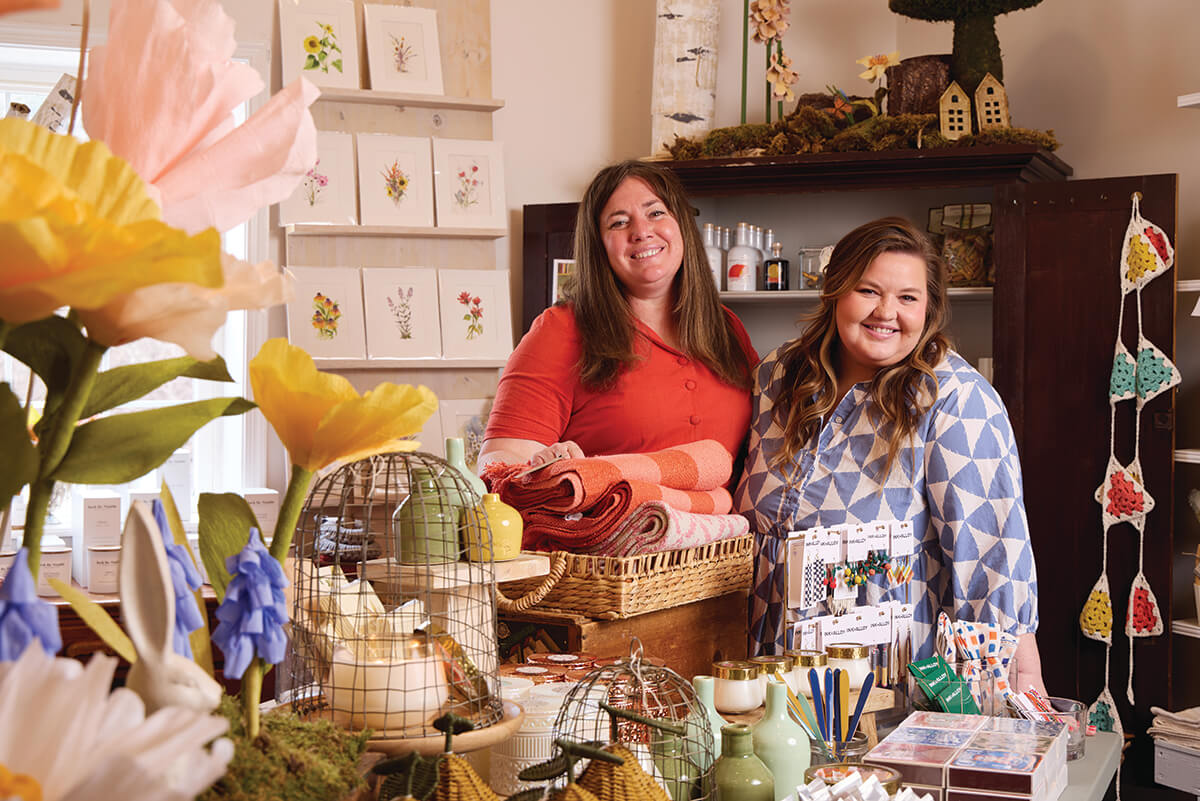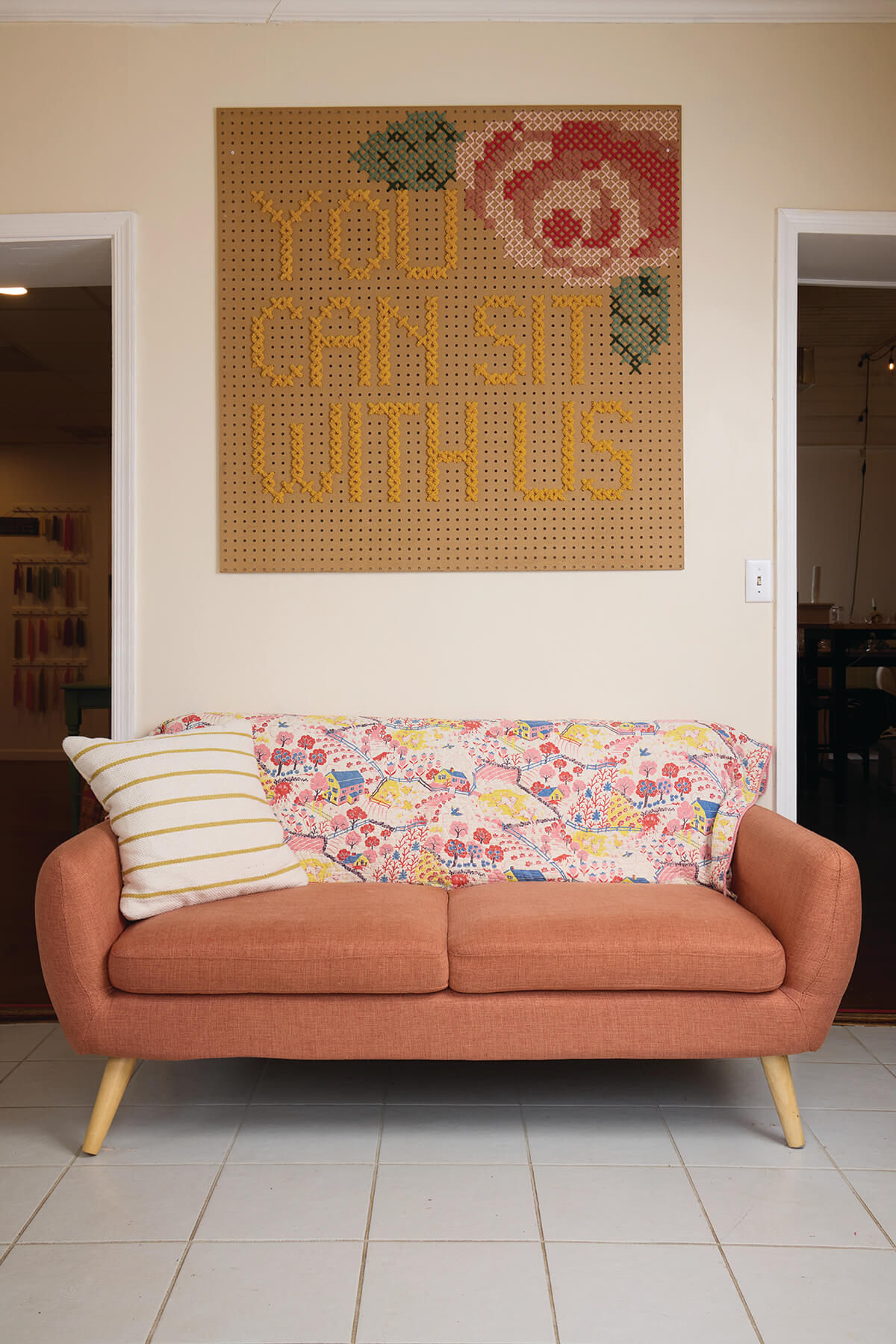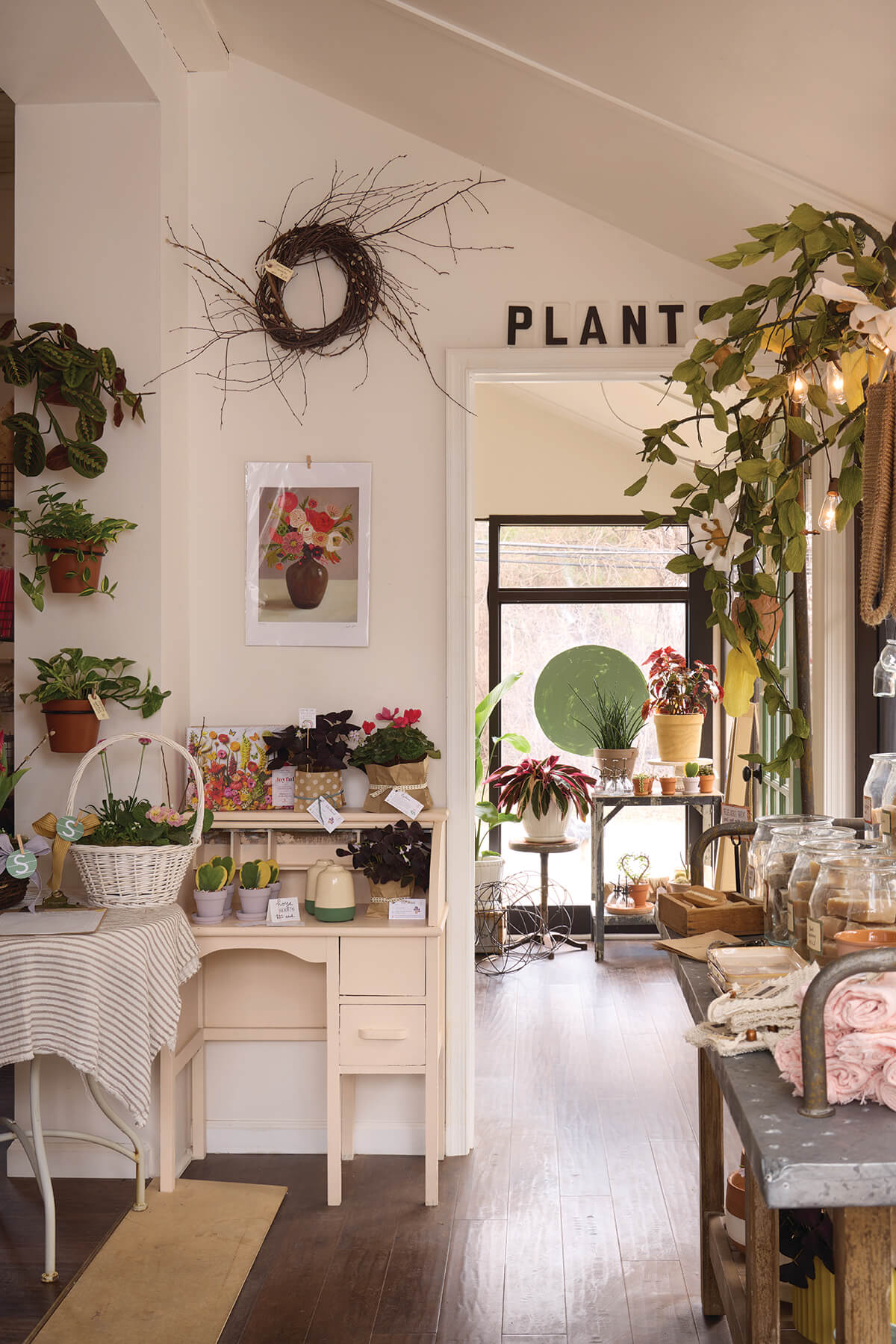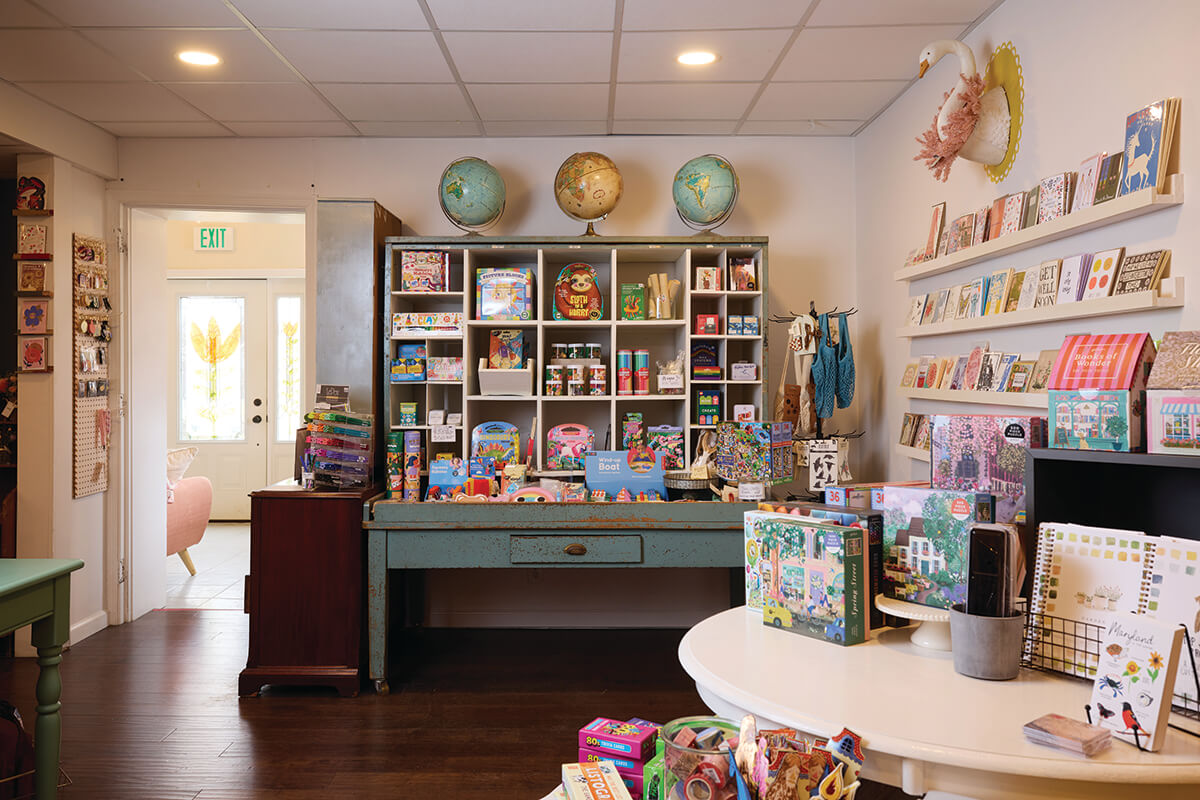Home & Living
Washday Floral and Schoolhouse Offer Personalized Flowers and Gifts in Fallston
Honoring the history of an early 20th-century school building, sisters Cortney Rudez and Tiffany Rueckert have have converted it into a boutique, floral shop, and community hub.

Tucked into a side street off Mountain Road, that busy thoroughfare that winds through Harford County’s suburbs and farmland on its way to I-95, is a two-room building that was once home to Fallston’s Youth’s Benefit School.
When it opened to much fanfare in 1910, teachers commuted on horseback and heated the rooms with a coal stove. The frame building still stands where a string of restaurants, a gas station, and a Walgreens peter out into countryside.
Honoring the building’s legacy, sisters Cortney Rudez and Tiffany Rueckert have converted it into a boutique, floral shop, and community hub: Washday Floral and Schoolhouse. (The name “Washday” comes from the boutique’s humble origins. More on that in a bit.)
Inside the old school vestibule is a sofa, above which hangs a large pegboard with the phrase “You Can Sit With Us” in cross-stitch.
“Cortney made that,” says Rueckert, owner of Washday Floral and co-owner of Schoolhouse with Rudez. “It means ‘come as you are,’ whether you’re a mom who’s in your pajamas and you just dropped your toddler off across the street at preschool, or you’re a wife who’s needing an escape because you’re caring for your sick husband at home, or you’re a little sweet teenager who has pink hair and a crazy outfit on who’s just excited that there’s a place where she feels safe and like she has friends here.”
The shop exudes that level of warmth and comfort. It’s almost the first day of spring and Rudez is in the process of transforming Schoolhouse into a fairyland, complete with enormous Alice in Wonderland-esque flowers made of crepe paper and pipe cleaners.
An artist, she changes the installation on Schoolhouse’s large front entry table seasonally. “Just give me some recyclable materials and a hot glue gun and I’m good to go,” says Rudez with a smile.
The store’s signature scent, “Cozy” by candlemaker Jack Be Nimble, fills the rooms with a luscious smell. “People come in and feel they can take a deep breath here and feel restored and inspired,” says Rueckert, explaining what differentiates their store from a big box or online retailer. “It’s a creative soul personified in a store.”


Getting to this stage was an evolution. The sisters are originally from Bakersfield, California. Rueckert came east first, with her husband; Rudez came 12 years ago “just for the summer”—and never left. Their father enjoyed writing, their mother did craft fairs, catering, and flower arranging, and one of their brothers (sandwiched inside the seven years that separate the two sisters) is in graphic design.
“We were brought up in an environment that nurtured creativity,” says Rudez. “I was always creative, even when I was very young. I’d spend more time decorating the pages of my book reports than I did on the report itself.”
Rudez was a designer and instructor during the scrapbooking craze of the early aughts, took a detour to work in dental hygiene, then started her own small business, “The Papered Goose,” doing small art pieces. Meanwhile, Rueckert left her work as an elementary school teacher and began working at Belvedere Farm, helping build their floral design business and their presence at farmers markets. In 2017, she launched Washday Floral in her home’s laundry room with Rudez helping out.
When Rueckert’s business outgrew the laundry room—as the mother of three boys, it’s no surprise—the pair began looking for a location in downtown Bel Air, with no luck. Then they drove by the Schoolhouse, just minutes from Rueckert’s house, and saw that it was available.
While the building had many lives after Youth’s Benefit School moved in the 1950s, the sisters say it is still best known locally as the former Video Tonight store. When they took over the building, it had most recently been a computer repair shop. The drop ceiling was stained, and the walls were electric blue.
Through their own hard work (Rueckert tackled the ceiling singlehandedly) and support from the community (a neighborhood contractor worked nights for them for only the cost of supplies), they opened in 2022.
According to Rudez, the sisters have always been close, but being in business together was a new dynamic. “We respect each other’s strengths and complement each other, and we laugh and hug a lot,” she says. She adds that it helps that they share a similar aesthetic, noting that they often inadvertently dress alike.
Schoolhouse has gained a reputation as “the Anthropologie of Fallston,” says Rudez.
The pair take pride in seeking out local makers—their fresh plant atrium is supplied (and nurtured) by Jo Powell of @mamajosplants, they have a wall of botanical watercolors by artist Michael King, beef jerky made using regional Roseda beef, locally made body scrubs and goat’s milk soaps, and even a “junior makers” corner where they sell bracelets and keychains made by area teens.
Keen believers in the power of storytelling, Rudez will often write small cards in her lovely handwriting to detail the backstory of a product, be it the perfect cinnamon and vanilla-infused maple syrup she brought back from a trip to Vermont or the story of a displaced Ukrainian artist who was crocheting flowers until she could be reunited in the U.S. with her Towson- based fiancé.
As much as they love local, Rudez says they also carry fair trade global brands. “I love sharing those stories,” she says, “and we love supporting women from other countries who are just trying to help their families.”
“We love to talk about the products that we carry because we believe in them,” says Rueckert. “People want to be conscious consumers; they want to feel like they’re connected to their products and feel good about what they’re buying and what they’re gifting.”

In addition to home goods, cards, plants, books, kids’ goods, and art pieces, there are always fresh bouquets on sale made by Washday Floral. Rueckert does small weddings, events, and proms, but also makes “jam jar” and petite “saltshaker” arrangements for Schoolhouse inspired by the little bouquets their mother would make for their house growing up.
Although Rueckert uses wholesale and dried flowers in winter, she is supplied by 12 local flower farms during the growing season. Her tiny arrangements are a boon to farmers who would normally need to take the short, stemmed flowers as a loss.
“Cortney calls them my ‘no flower left behind’ arrangements,” she says.
The flowers and the boutique create a nice synergy, with people often stopping by to get a gift, card, and flowers to take to a sick friend or as a present.
The care with which patrons choose their purchases, especially special gifts, is not lost on the sisters. Both are unapologetic criers and get emotional speaking about the community of customers, fellow retailers, farmers, and makers that’s grown up around the shop.
“More than products, I think people come to Schoolhouse because of how it makes them feel,” says Rudez. “Sometimes I feel like we’re not in the business of retail, but the business of kindness,” says Rueckert. “So many emotions come through the door, whether someone’s excited about their daughter having a new baby or they’re sad because their friend just got diagnosed with cancer. . . . When they want to give that little something, when they want to be kind, people come here.”